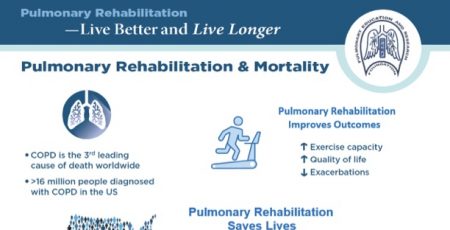13 Aug Singing With Shortness of Breath
The following is a question we received from a patient. PERF board member Mary Burns, RN, BS, answers.
Hi,
I read your article on pursed lips breathing. What is the ratio of the intake of air and the release of it? Do I have to keep the air in for a while, by holding my breath? Should pursed lips be like whistling? I have shortness of breath when singing. Every time I have a performance and sing I lack air.
Thank you,
Vintage
Dear Vintage,
This is a good question. It sounds simple, but it is really very complex. The answer must be, “it depends.” To begin with, it depends upon your general physical condition. There are many things that can contribute to shortness of breath that your doctor will consider. This includes heart disease, anemia, obesity, general poor physical condition, exercise deconditioning, high level of anxiety, altitude or even pregnancy! Do you have respiratory disease? If so, what kind and how severe? Other factors include your smoking history, the results of your last physical, and your lung function, which can be measured by spirometry.
Perhaps now you can understand why you need to discuss this with your doctor at your next visit. He or she can help you evaluate many possible causes of your problem and hopefully get down to some simple causes and solutions.
While we can’t give you any definitive answers, we do have a few general suggestions to consider until you see your physician when you’ll know more about what is causing your problem.
- Most important of all, your ratio between inspiratory and expiratory time should be whatever is comfortable for you. People doing effective pursed lips breathing don’t work hard at it!
- If you have COPD, you should try to slow your breathing and breathe out 2 or 3 times longer than you breathe in.
- With some other pulmonary conditions, just slowing your respiratory rate down to 16 or less can help shortness of breath. Pursed lips breathing makes it easier to slow down the rate of your breathing.
- Don’t worry about pursing your lips like a whistle, which you certainly can’t do while singing. Gently pursed lips may make it easier to raise your oxygen level if that is a problem and thereby decrease shortness of breath, but your breathing pattern is also important. So, slow your breathing down and try to relax!
- Last but not least, remember that even people without any serious problems can have shortness of breath at times, especially when nervous or with a new activity. Don’t worry about this too much, but do discuss it with your physician.
I’d also like to add that even if you should have some sort of respiratory disease causing your shortness of breath, singing would be one of the things recommended to help you! I’ve had patients with very severe respiratory disease who, after pulmonary rehab and breathing retraining, were able to return to singing in public. Whatever else you do, keep singing!
Best wishes,
Mary Burns, RN, BS





sammy Jean
Posted at 11:58h, 01 JanuaryI was wondering if it is possible to be a professional singer even though I have anemia?
PERF
Posted at 14:08h, 12 JanuaryDear Sharon,
You have an interesting question, but unfortunately one that is well beyond the scope of any quick response in an email. Your anemia could be a very simple problem or a very serious one. Ask your doctor to explain the numbers on your blood work that indicate you have anemia, along with possible causes and treatments. How soon you can professionally sing would depend on all these answers, but most important is how you evaluate your ability to sing.
There are many causes of anemia and degrees of severity. Your red blood cells carry oxygen around your body. If there are too few of them, as in severe anemia, it can make you short of breath. Your treatment can vary from being put on iron pills, to transfusions, to other more involved treatments depending on the cause of your anemia. How soon the anemia improves also depends on the cause, the severity and the treatment needed.
As you can see, your question needs to be discussed with your physician who has your complete history.
If you feel, after talking to your doctor, you have other questions we can answer, feel free to write again.
We wish you the best of luck!
On behalf of PERF,
Mary Burns, RN, BS
Asst. Clinical Professor, School of Nursing, UCLA (ret)